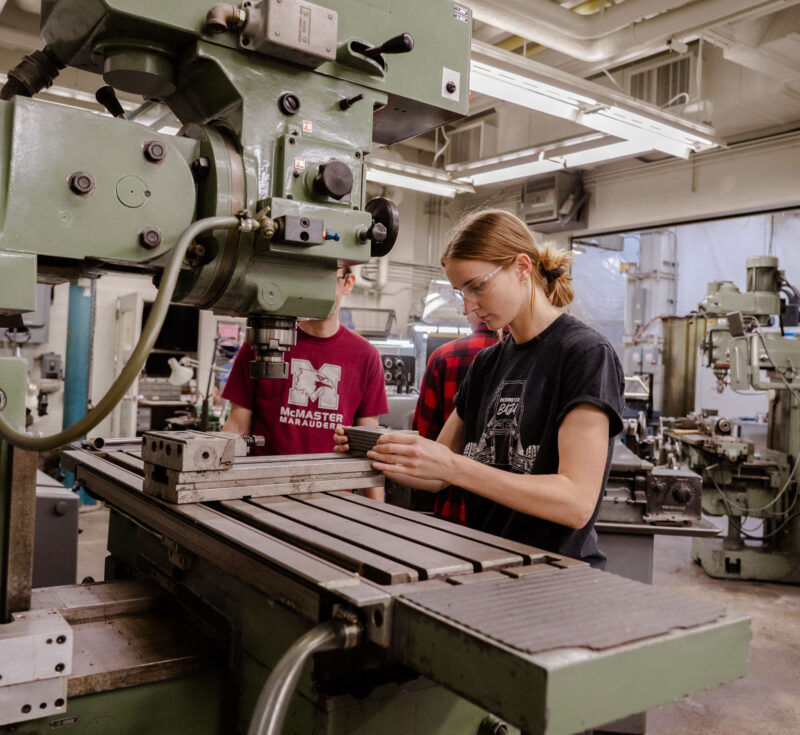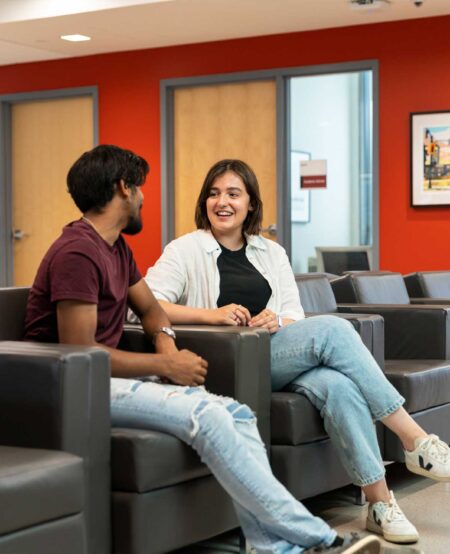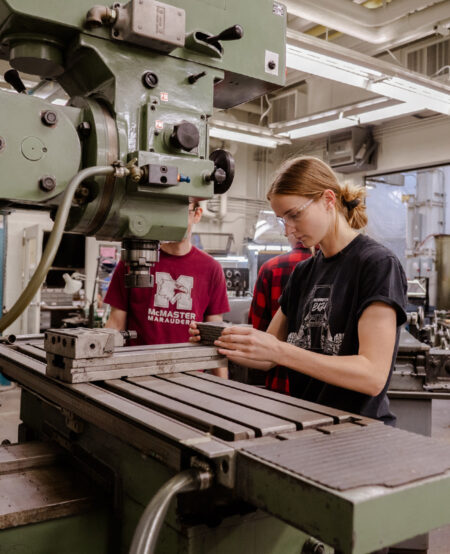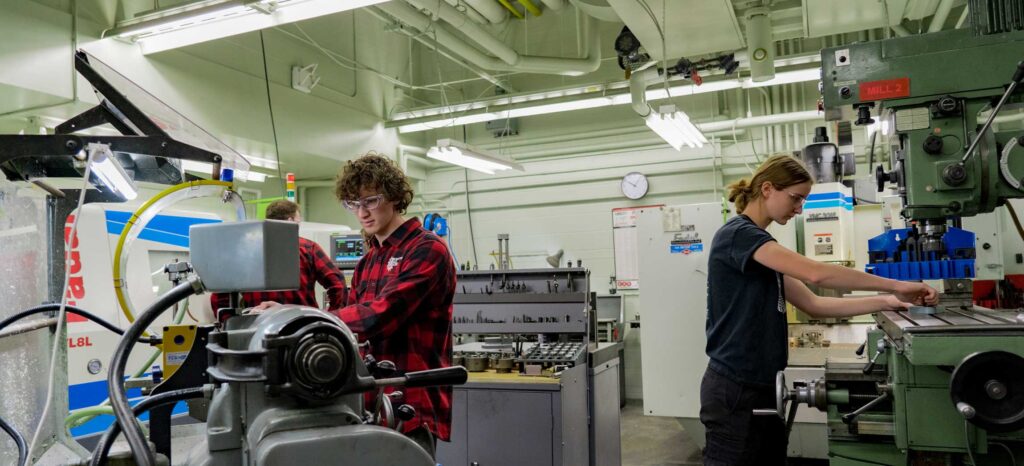- Length
- 24 courses (Advanced Entry From College)
- Degree
- Bachelor of Technology (Co-op Mandatory)
- Program
- Bachelor of Technology (Degree Completion)
- Options
-
Program highlights
Our unique ‘diploma to degree’ program is tailor-made for college graduates wishing to upgrade their education and further their careers. All eligible program entrants receive two years’ worth of advanced credit from their previously completed college diploma or university degree.
Curriculum
There are 17 core technical courses that cover advanced math, fluids, materials, thermodynamics, metal forming, fabrication and micro manufacturing, quality control and assurance, programming, and lean manufacturing. Seven management courses complement your studies.
Career paths
Graduates are ideal candidates for engineering, project management, and supervisory roles that require a technical background. They commonly work in industrial fields such as automotive, aerospace or energy, and often work with ultra-precision and medical devices.
Admission requirements
Additional notes:
- If your cumulative GPA is between 70-75%, or if it has been more than 10 years since you completed your qualifying education, please consider applying to the Technology Certificate program which, upon completion, may qualify you for admission into the B.Tech. Degree Completion program.
- Applicants with educational backgrounds equivalent to those completing advance level college diplomas, including internationally educated applicants, will be considered on an individual basis and are encouraged to apply. We cannot pre-assess candidates for admission prior to becoming applicants.
- You must submit transcripts for ALL post-secondary work that you have completed (i.e. at a university or college in Canada or internationally), including work in any non-technology field completed prior to or after your advanced diploma.
Eligible college partner programs
A list of eligible college partner programs can be found here.



Careersand further studies
Sample careers:
- Process planning and improvement roles in manufacturing, aerospace, and energy industries
- Structure and design analysis
- System control and process automation
- Technical sales and support positions
- Private sector consulting
- Finite element analysis specialist
Further study:
- MEng Design, McMaster University
- MEng Civil Engineering, University of Toronto
- Master of Architecture, University of Calgary
- MASc Civil Engineering, McMaster University
- MEng Geotechnical and Geoenvirontmental Engineering, Western University

Need moreinformation?
Get in touch
We’ll help you through every step, from applying, to accepting your offer and joining us on campus!
W Booth School of Engineering Practice and Technology
We blend our focus between academic theory, engineering practice and understanding how to leverage technology to create solutions and produce value for society.

